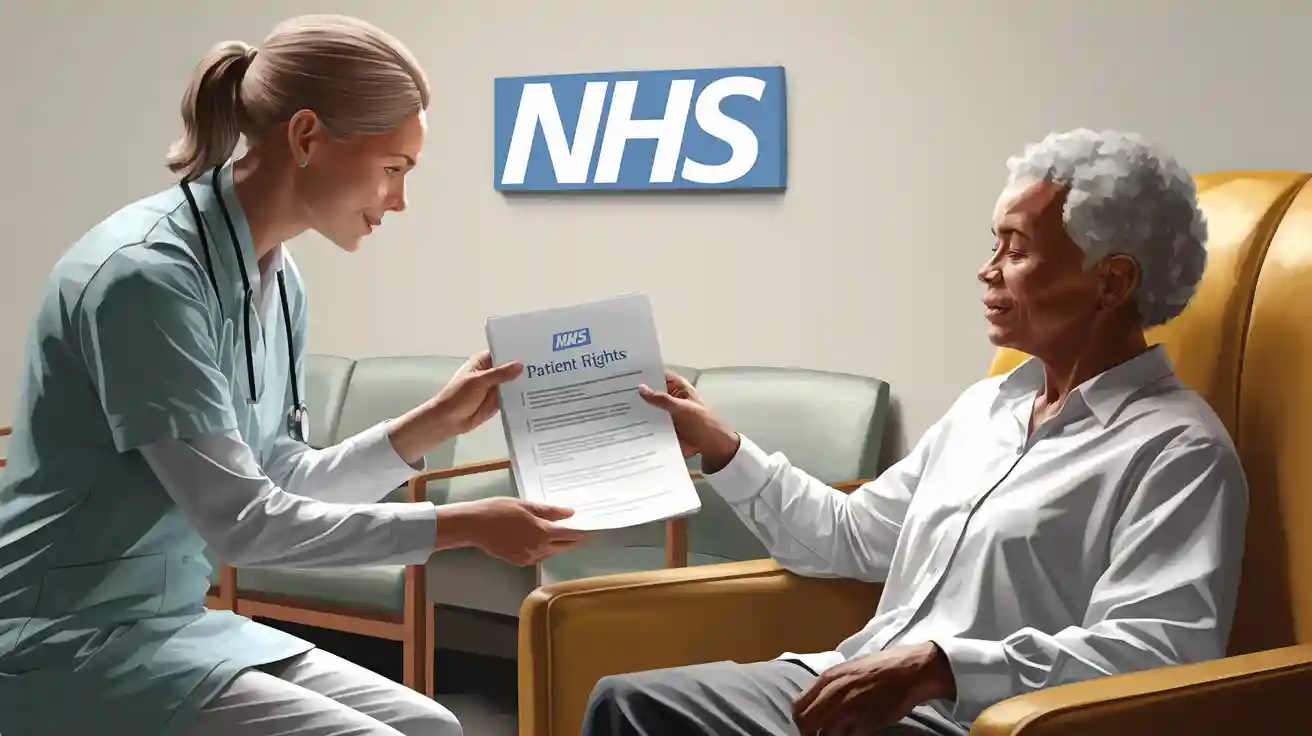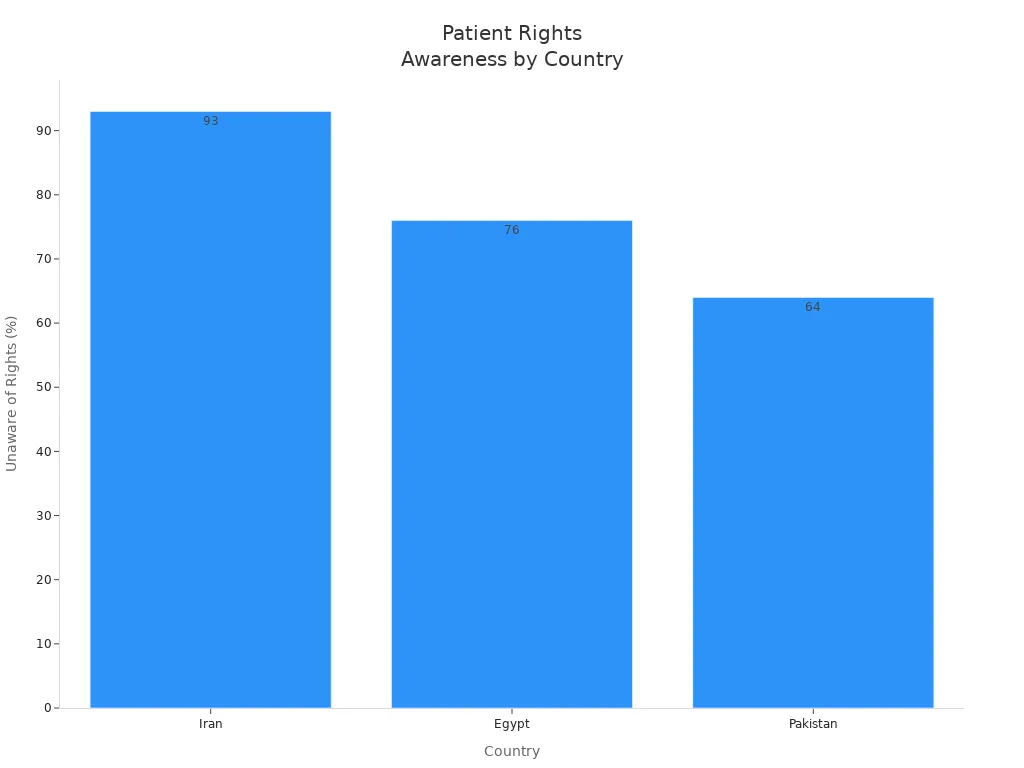What you should know about NHS patient rights

You have important NHS patient rights. These include your right to care, free nhs treatment, and the right to safety. You can accept or refuse treatment, be treated with dignity, and access nhs support services. You have the right to be involved in decisions and to receive good quality of care. Many nhs patients do not know about their rights.

Knowing your nhs patient rights helps you feel confident and improves your healthcare experience.
Key Takeaways
You can get free NHS healthcare if you live in the UK legally. You do not need to be a British citizen to get treatment. You can get the care you need without paying.
You can pick your hospital and consultant for your treatment. You can use NHS tools to look at choices. You can check location, waiting times, and patient reviews.
You must be treated with dignity and respect. If you think your rights are not respected, you should speak up. You can use the complaints process to fix the problem.
NHS patient rights
Free healthcare access
If you live legally in the United Kingdom, you can use NHS services for free. You do not need to be a British citizen or have a job to get NHS care. Some people pay an immigration health surcharge, but most NHS patient rights mean you get free treatment when you need it. If you are visiting from another country, you can get emergency care, but some treatments may not be available for visitors.
Criteria | Description |
|---|---|
Legal Residency | Anyone who lives legally in the United Kingdom can get free NHS healthcare. |
Citizenship Status | You do not need to be a British citizen or have a job to use the NHS. |
Immigration Health Surcharge | Some people must pay an immigration health surcharge. |
Treatment for Foreigners and Visitors | Some foreigners and visitors can get certain treatments. |
Commonwealth and EU Citizens | Some Commonwealth and EU citizens with a European Health Insurance Card get limited emergency care. |
When you use NHS care, you should get good quality services. The NHS Constitution lists your patient healthcare rights, like getting approved drugs and vaccinations.
Patient choice
You can choose where you want to have hospital treatment. You might pick a hospital because of its location, waiting times, or ratings. Your GP can help you by giving information and making a list of choices. You can also look up hospitals on NHS websites. The NHS lets you choose your consultant and treatment options. You can check hospital performance and patient reviews before you decide.
NHS law says you can choose your consultant.
You can pick from different treatment options for your condition.
The NHS gives you facts about hospitals, waiting times, and reviews to help you choose.
Some people do not use their right to choose because changes have made choices fewer. You might have fewer options, but you still have rights to GP and hospital services.
Dignity and respect
You must be treated with dignity and respect every time you use NHS services. Staff should be honest and act with integrity. Nurses and doctors must treat you fairly and respect your independence. The NHS Constitution and rules from groups like the Nursing and Midwifery Council support these standards.
Theme | Subtheme |
|---|---|
Autonomy | Dependence/Independence |
Healthcare Delivery Factors | Choice |
Organisational Factors | Staff Attitudes |
Communication | |
Privacy | |
Structure of Services | |
Staff Shortages | |
Physical Environment | |
Respect | |
Person-Centred Care |
Sadly, some patients say they do not always get dignity and respect. About 23% of patients get care that is not always good. Older adults and people with disabilities have more problems. Staff shortages and not enough help with basic needs, like eating, affect many people.
Waiting times
You have the right to be seen within NHS waiting time targets. The NHS Constitution sets clear goals for waiting times. For consultant-led care, 90% of admitted patients and 95% of non-admitted patients should be seen within 18 weeks. If you need breast symptom investigation, you should be seen within two weeks.
Treatment Type | Target Percentage | Time Frame |
|---|---|---|
Consultant-led care (admitted) | 90% | Within 18 weeks |
Consultant-led care (not admitted) | 95% | Within 18 weeks |
Breast symptom investigation | 93% | Within 2 weeks |
Even with these targets, many patients wait longer than they should. Less than 70% of cancer patients get treatment within the 62-day target. About 25% of people wait more than four hours in A&E. You can use your rights to GP and hospital services to ask for updates or look for other options if you wait too long.
Confidentiality and privacy
You have strong patient healthcare rights to confidentiality and privacy. The NHS takes misuse of patient information very seriously. Your GP must choose someone to be in charge of confidentiality. Regulatory bodies check that the NHS follows strict rules. Only staff who need your information can see it. You can ask how your data is used and say no to sharing it outside your care team.
The NHS reports several breaches of confidentiality each day. One time, a computer with personal data was sold, and this led to a big fine. In another case, a manager looked at patient records without permission. You should feel sure that the NHS works hard to keep your privacy safe.
Patient healthcare rights in the NHS Constitution
The NHS Constitution is the base for nhs patient rights. It explains your rights to access, quality, respect, and the right to complain. If you are unhappy with your care, you can make a complaint. The NHS Constitution also promises dignity and respect, with no discrimination.
Patient Rights | Description |
|---|---|
Right to Access | |
Right to Quality | You have the right to good care and a safe environment. |
Right to Respect | You have rights about consent, confidentiality, choice, and being involved in decisions. |
Right to Complain | You can complain about the care you get. |
Right to Dignity | You must be treated with dignity and respect, with no discrimination. |
You can change your GP or doctor if you want. You have choices about your care and treatment. The NHS Constitution gives you patient healthcare rights so you get good services and are treated as an individual. Other countries may focus more on laws, but the NHS puts patient-centred care and public involvement first.
Healthcare professionals help you learn about nhs patient rights. They help you understand your choices and support you to take part in decisions. Laws like the Mental Health Act and Care Act protect your rights and encourage respect in every NHS setting.
Using your patient rights
If rights are not respected
You may find that your rights as a patient are not always respected. Sometimes, you might face poor communication or delays in getting answers. The table below shows common problems:
Scenario | Description |
|---|---|
Communication Issues | You may feel unhappy if staff do not explain things clearly or listen to you. |
Handling of Complaints | If staff do not manage your complaint well, you may feel ignored or upset. |
You have a legal right to ask for changes if your medical records are wrong. You can also use your right to information to see what is in your records. The NHS must protect your privacy and keep your details safe.
Making a complaint
If you feel your rights as a patient have not been met, you can follow these steps:
Speak to the healthcare provider first. Ask for their complaints procedure.
If you are not happy, write a formal complaint to the Chief Executive of the NHS trust.
Contact Patient Advice and Liaison Services (PALS) for help if you need support.
The NHS receives over 100,000 complaints each year. Many are about treatment or the way staff handle your legal right to care and privacy.
Support and advice
You have a legal right to support if you face discrimination or poor care. PALS teams can help you solve problems quickly. You can also ask for an advocate if you need help to speak up. Training for staff and special nurses can make sure your rights as a patient are respected. Remember, you have the right to information, privacy, and to be treated with respect at all times.
You have many NHS patient rights. You can choose where you get care and see clear information about waiting times and quality. The table below shows new changes that help you use your rights:
Key Takeaway | Description |
|---|---|
Patient Access | You can pick your care location using the NHS app. |
Quality of Care | You see waiting times and ratings before you decide. |
Complaints Process | You get faster help with complaints. |
You should use the patient advice and support service if you need help. The patient advice and support service answers your questions. The patient advice and support service helps you understand your rights. The patient advice and support service supports you if you feel your rights are not respected.
FAQ
What should you do if you feel your NHS rights are ignored?
You should speak to staff first. If you still feel unhappy, contact Patient Advice and Liaison Service (PALS) for help.
Can you see your own NHS medical records?
Yes, you can ask to see your records. You have the right to check your information and ask for corrections if needed.
How do you change your GP or doctor?
Visit your chosen GP surgery.
Ask to register as a new patient.
You do not need to give a reason for changing.
See Also
Your NHS Patient Rights Explained for 2025
A Guide to Your Rights Within the NHS Framework
Comparing NHS and Private Waiting Times for Patients

